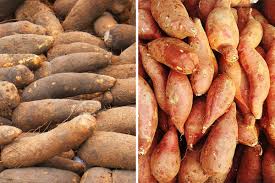Africa is a continent blessed with a vast array of natural resources, but perhaps, one of its most treasured gifts to the world is its rich culinary heritage. African food is not just delicious; it is deeply rooted in tradition, culture, and health. In today’s world, where people are constantly seeking healthier and more sustainable food choices, African cuisine offers a goldmine of nutritional benefits and holistic wellness.
Why African food is good for human health
African meals are typically made from whole, natural ingredients that are minimally processed. This means they are loaded with vitamins, minerals, fibre, and antioxidants, which are essential for maintaining a healthy body. Many traditional African dishes are plant-based, which aligns with modern dietary recommendations for heart health and longevity.
Popular healthy African foods you should know

Here are some of the healthiest African foods and why they are great for human health:
1. Fonio: A tiny grain native to West Africa, fonio is rich in iron, amino acids, and fibre. It is gluten-free and excellent for digestion and weight management.
2. Okra: Used widely in soups and stews, okra is low in calories and rich in vitamins A and C. It also supports heart health and blood sugar control.
3. Moringa: Known as the “miracle tree”, moringa leaves are rich in protein, iron, calcium, and antioxidants. It supports immune function and reduces inflammation.
4. Beans and legumes: Staples in African homes provide protein, fibre, and essential minerals, making them perfect for sustainable agriculture and food security.
5. Cassava leaves: A delicacy in many regions, these leaves are packed with vitamin C, folate, and antioxidants.
6. Yam and sweet potatoes: High in complex carbohydrates, fibre, and vitamin A. They help regulate blood sugar and support digestive health.
How African foods can promote sustainable living
African cuisine often incorporates locally-sourced ingredients that are grown using environmentally-friendly methods. This promotes sustainable agriculture and reduces reliance on imported food products. The traditional farming methods used in many African communities also support biodiversity and environmental conservation. Moreover, traditional food preservation techniques like fermentation, sun drying, and smoking are not only eco-friendly, but also enhance the nutritional value of foods. These practices help reduce food waste and maintain food security in Africa.
Most asked questions about African food and health
1. Is African food healthy?
Yes, when prepared traditionally, African food is among the healthiest in the world. It is often high in plant-based nutrients, whole grains, and healthy fats.
2. What is the healthiest African dish?
Dishes like ugali with sukuma wiki, okra soup, moringa stew, and fonio porridge are considered very healthy, due to their rich nutrient profiles.
3. Can African food help in weight loss?
Yes, many African foods are low in fat and high in fibre, which promotes fullness and reduces overeating.
4. How does African cuisine support modern farming techniques?
African farming is evolving with the integration of modern farming techniques that increase yield while preserving traditional values. These include crop rotation, organic composting, and sustainable irrigation.
The role of African cuisine in fighting malnutrition
Malnutrition remains a major challenge across the continent. However, indigenous foods like millet, sorghum, and legumes are affordable, nutrient-dense solutions that can tackle this issue. Fortifying these foods with additional vitamins and promoting their consumption can significantly improve nutritional outcomes. Furthermore, African foods are naturally high in micronutrients like zinc, magnesium, and folate, which are crucial for child development and immune function. Emphasising these in dietary interventions can help reduce malnutrition and promote healthier communities.
How to incorporate more African foods into your diet
If you want to embrace a healthier lifestyle, consider adding more African staples to your meals. Here is how it works: Cook with natural oils like red palm oil or shea butter in moderation; experiment with new grains like fonio, millet, and teff; add more leafy greens like moringa, amaranth, or cassava leaves to your stews; use native spices like ginger, turmeric, and garlic for added health benefits. Try fermented foods such as ogi (fermented maize) or injera (fermented teff bread), to boost gut health.
Healing power of African food
African food is not just a cultural treasure; it is a path to better health, sustainable living, and environmental conservation. By embracing traditional African diets, we reconnect with our roots and nourish our bodies in the most natural way possible. For those passionate about food security in Africa, modern farming techniques, and sustainable agriculture, African cuisine provides a compelling starting point. It reminds us that the future of food lies in the wisdom of the past. Ready to explore more on African food and agriculture? Join our growing community of health-conscious, sustainability-driven food lovers.

